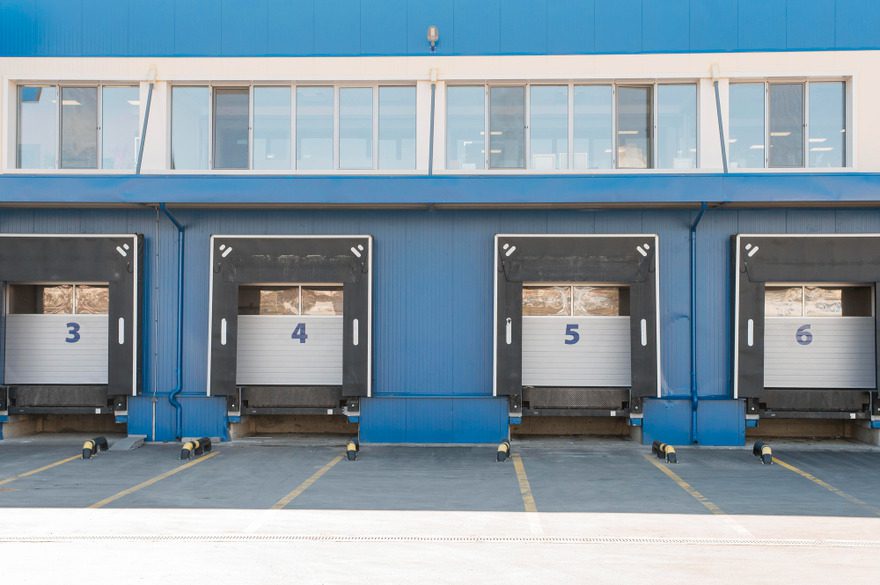SINCE 1988
203-546-7793

Key Takeaways
Introduction
5 Overlooked Commercial Real Estate Assets with Promising Growth Prospects
8 Benefits of Investing in Commercial Real Estate
7 Common Mistakes to Avoid in Commercial Real Estate Investing
How to Find the Right Commercial Real Estate Broker
Frequently Asked Questions
✔ Overlooked assets like flex spaces, automotive properties, self-storage, medical offices, and entertainment venues offer growth potential due to changing market trends and consumer preferences.
✔ Commercial real estate investing provides benefits such as higher returns, diversification, stable cash flow, and inflation protection.
✔ Success in commercial real estate requires avoiding mistakes like neglecting due diligence, overlooking market trends, poor diversification, underestimating costs, overpaying, ignoring tenants, and lacking exit strategies.
✔ Select the ideal broker by conducting research, getting referrals, evaluating their track record, assessing market insight, and communication skills, and verifying credentials.
In commercial real estate, certain assets often fly under the radar despite holding significant promise for investors. These overlooked assets boast unique characteristics and growth prospects that merit closer attention. Here are five commercial real estate assets that offer promising growth opportunities, shedding light on their potential and the factors driving their expansion in the market:
These commercial real estate assets in Newtown, CT, may not dominate headlines but possess strong potential for significant returns. By shedding light on these underappreciated markets, investors can discover valuable avenues for diversification and long-term growth in their real estate portfolios.
Flex spaces, also known as flexible office spaces, are becoming increasingly popular in the commercial real estate market. Here’s why:
Flex spaces offer a unique advantage by being highly adaptable to various industries’ needs. Whether it’s tech startups, creative agencies, or traditional businesses, flex spaces can be easily customized to suit their requirements. This adaptability makes them an attractive option for businesses looking for versatile work environments.
The growth of remote work, driven by new technology and changing views on work-life balance, has increased the need for flexible workspaces. Many companies embrace remote work policies, allowing employees to work from anywhere.
Automotive properties refer to commercial real estate assets specifically designed or utilized for activities related to the automotive industry. These properties can include dealerships, auto repair shops, gas stations, car wash facilities, and parking lots/garages.
There are various types of automotive properties, each serving different functions in the industry. Here are the most common types:
The expansion of the automotive industry significantly boosts the demand for automotive properties. With increasing populations, economic development, and evolving consumer preferences, there’s a rising need for dealerships, repair shops, and related infrastructure worldwide.
The push for sustainable transportation, including electric vehicles (EVs), is changing the car industry and increasing the need for dedicated infrastructure. This includes charging stations, battery-swapping facilities, and EV service centers. As governments implement initiatives to reduce carbon emissions and promote EV adoption, the demand for EV-related automotive properties is poised to soar.

Self-storage facilities are commercial properties that provide individuals and businesses with space to rent for storing goods and belongings. These facilities typically offer various unit sizes, security features, and access options, allowing customers to store items temporarily or long-term based on their needs.
Rapid population growth and urban migration drive the demand for self-storage facilities. As urban areas become more densely populated, residents face space constraints in their homes. Additionally, increased consumer consumption leads to a continuous influx of belongings requiring storage.
Changing lifestyles and economic factors have spurred a surge in downsizing and decluttering. Individuals and businesses opt for smaller living and office spaces, necessitating storage for excess belongings. This trend creates a higher demand for self-storage facilities as customers seek secure and convenient storage solutions. Consequently, the industry experiences continuous growth to meet evolving storage needs.
Medical offices are commercial real estate properties designed and utilized to accommodate medical practitioners and healthcare services. These spaces serve as essential infrastructure for delivering patient care, diagnostic services, and administrative functions within the healthcare industry.
The aging demographic, alongside increased life expectancy, propels demand for medical services and, consequently, medical office spaces. Older people often need more healthcare services and special treatments, leading to a higher demand for medical facilities like doctors’ offices. Advances in medical technology further contribute to extended lifespans, driving the need for more medical services and facilities.
The growth of telemedicine and outpatient services is changing healthcare, affecting the need for medical office space. Telemedicine enables remote medical consultations, which reduces the necessity for in-person visits. Consequently, medical practitioners may require physical office spaces to facilitate virtual consultations, house telehealth equipment, and manage administrative tasks.
The emphasis on outpatient care models also requires specialized medical office spaces equipped with outpatient treatment facilities, diagnostics, and rehabilitation services.
Entertainment venues serve as hubs for social interaction, leisure activities, and artistic expression, contributing to the cultural richness of communities. With their varied offerings, entertainment venues cater to a wide range of interests and preferences, which fosters engagement, enjoyment, and enrichment among visitors.
Entertainment venues encompass a diverse array of spaces designed to provide recreational and cultural experiences to patrons. These venues may include:
People seek memorable and engaging experiences to share with friends and family, making entertainment venues popular for leisure activities.
Additionally, social media platforms amplify the desire for unique experiences, as individuals share their experiences online, further promoting these venues to a wider audience. This consumer trend fuels the growth of entertainment venues and drives innovation in the industry to offer immersive and unforgettable experiences.
The rise of mixed-use developments, which integrate various uses such as residential, commercial, retail, and entertainment, contributes to the growth of entertainment venues. Developers recognize the value of creating vibrant and dynamic environments that cater to diverse needs and preferences.
By incorporating entertainment venues into mixed-use developments, developers enhance the space’s overall attractiveness and livability, attracting residents, visitors, and businesses alike.
Investing in commercial real estate in Newtown, CT, offers numerous advantages that can enhance portfolio performance and financial stability. Here are eight compelling benefits:
Commercial real estate investments often offer the potential for higher returns compared to other asset classes, such as stocks and bonds. With the proper property selection, market timing, and strategic management, investors can capitalize on rental income, appreciation, and value-added opportunities to achieve attractive returns on investment.
Commercial real estate provides diversification benefits by offering exposure to a distinct asset class with a low correlation to traditional investments. Adding commercial properties to an investment portfolio can help spread risk and mitigate volatility, enhancing overall portfolio stability and resilience.
Commercial real estate investments typically generate stable and predictable cash flow streams from rental income. Leases with long-term tenants, such as businesses and corporations, contribute to consistent revenue streams, providing investors a steady income and financial security.
Commercial real estate serves as a natural hedge against inflation, as property values and rental income tend to increase over time in line with inflationary pressures. Real assets like commercial properties have intrinsic value and can retain purchasing power during rising prices, preserving investors’ wealth.
Commercial properties have the potential to appreciate over the long term, driven by factors such as economic growth, demand-supply dynamics, and market trends. As property values increase, investors benefit from capital appreciation, which can significantly boost investment returns.
Commercial real estate offers various tax advantages that can enhance investors’ after-tax returns. Depreciation deductions allow property owners to offset taxable rental income, reducing their overall tax liability. Additionally, tax-deferred exchange strategies, such as 1031 exchanges, enable investors to defer capital gains taxes when reinvesting proceeds into like-kind properties.
Unlike other investment vehicles, commercial real estate provides investors with direct control over property operations, management, and strategic decision-making. This hands-on approach allows investors to implement value-maximizing strategies, optimize operating efficiency, and enhance property performance to drive returns.
Commercial real estate offers opportunities for value enhancement through proactive management, renovation, and redevelopment initiatives. Value-add strategies, such as property repositioning, lease negotiations, and capital improvements, can unlock untapped potential, increase property value, and maximize investment returns.
Navigating the complexities of commercial real estate investing requires foresight, diligence, and strategic decision-making. While the potential for lucrative returns is enticing, investors must tread carefully to avoid common pitfalls derailing their investment objectives. Here are seven critical mistakes that investors should steer clear of when venturing into commercial real estate:
Failure to conduct thorough due diligence before investing in commercial real estate can lead to costly mistakes. Investors should meticulously assess property condition, financial performance, market dynamics, and regulatory compliance to mitigate risks and make informed investment decisions.
Neglecting to stay abreast of market trends and dynamics can result in missed opportunities or investments in declining markets. Investors should regularly analyze market data, economic indicators, and industry forecasts to identify emerging trends and capitalize on favorable market conditions.
Concentrating investments in a single property type, location, or market segment increases vulnerability to market fluctuations and economic downturns. Diversifying across asset classes, geographic regions, and investment strategies can help mitigate risks and enhance portfolio resilience.
Underestimating operating expenses such as maintenance, property management, utilities, and insurance can erode investment returns and strain cash flow. Investors should conduct thorough financial projections and budgeting to accurately assess the total cost of ownership and ensure sufficient reserves for unexpected expenses.
Paying inflated prices for commercial properties can result in negative cash flow, reduced profitability, and diminished returns on investment. Investors should conduct thorough property valuations, negotiate effectively, and avoid succumbing to bidding wars to secure properties at fair market value.
Neglecting tenant relationships and satisfaction can lead to high turnover rates, vacancies, and income loss. Investors should prioritize tenant retention by maintaining open communication, addressing tenant concerns promptly, and providing quality property management services to foster long-term tenant relationships and maximize occupancy rates.
Failing to develop and execute viable exit strategies can limit flexibility and hinder investment liquidity. Investors should formulate clear exit plans based on market conditions, investment objectives, and risk tolerance, considering options such as property sale, refinancing, or portfolio restructuring to optimize returns and mitigate downside risks.

Finding the right commercial real estate broker is crucial for success in your investment endeavors. Here are seven essential steps to help you identify and select the ideal broker:
Start by researching commercial real estate brokers in your target market. Look for brokers with extensive experience and a proven track record of success in handling transactions similar to your investment goals. Evaluate their expertise in specific property types, sectors, and geographic areas relevant to your investment strategy.
Reach out to colleagues, industry professionals, and fellow investors for recommendations and referrals to reputable commercial real estate brokers. Personal referrals often provide valuable insights and firsthand experiences to help you identify trustworthy and competent brokers.
Explore online platforms, broker websites, and commercial real estate listings to review brokers’ portfolios and current listings. Pay attention to the types of properties they represent, their market presence, and the quality of their marketing materials and listings.
Conduct interviews with multiple brokers to assess their qualifications, expertise, and compatibility with your investment objectives. Prepare a list of questions to ask during the interview, focusing on their experience, approach to client representation, and understanding of your specific investment criteria.
Choose a broker with in-depth knowledge and insights into the local commercial real estate market. A broker who understands local market dynamics, trends, and regulatory factors can provide valuable guidance and strategic advice to help you navigate the market effectively and make informed decisions.
Communication is key when working with an estate broker. Evaluate their responsiveness, communication style, and ability to communicate complex concepts and information effectively. Choose a broker who is accessible, responsive to your inquiries, and transparent in their communications.
Verify that the broker holds the necessary credentials and licensing required to practice commercial real estate brokerage in your jurisdiction. Check for professional designations such as CCIM (Certified Commercial Investment Member) or SIOR (Society of Industrial and Office Realtors), which indicate high expertise and professionalism.
Properties like multifamily apartment buildings, prime-location office buildings, and well-located retail centers often rank as the most profitable commercial real estate investments. This is because they generally have consistent demand, stable income streams, and potential for value appreciation. The profitability of commercial properties varies depending on factors such as location, market conditions, and property type.
Commercial real estate primarily involves properties intended for business purposes, such as office buildings, retail centers, industrial warehouses, and multifamily apartment complexes. Unlike residential real estate, commercial properties are leased or rented to businesses or tenants for commercial activities, generating income through rental payments and lease agreements. Commercial real estate transactions often involve longer lease terms, higher capital investment, and specialized knowledge of commercial leasing, financing, and property management.
The commercial property type with the most upside varies depending on market conditions, economic trends, and investment strategies. Properties in emerging or revitalizing neighborhoods, like mixed-use developments and adaptive reuse projects, often have significant potential for value appreciation and income growth. These assets provide substantial upside for investors who are prepared to take calculated risks and apply value-added strategies.
Commercial real estate prices are influenced by a multitude of factors, including supply and demand dynamics, economic indicators, interest rates, market sentiment, demographic trends, and local market conditions. Property-specific factors such as location, property type, condition, occupancy rates, rental income, and potential for future growth also play significant roles in determining commercial real estate prices. External factors such as government policies, infrastructure development, and geopolitical events can also impact commercial property values and investment returns.
Discover unparalleled opportunities for growth in the commercial real estate market with Tower Realty Corp in Newtown, CT. Our expertise in identifying properties with exceptional potential ensures that your investment yields maximum returns. Whether you’re seeking retail spaces, office buildings, or industrial warehouses, our portfolio offers diverse options tailored to your strategic objectives.
Partner with Tower Realty Corp today and embark on a journey toward lucrative ventures in the dynamic world of commercial real estate!